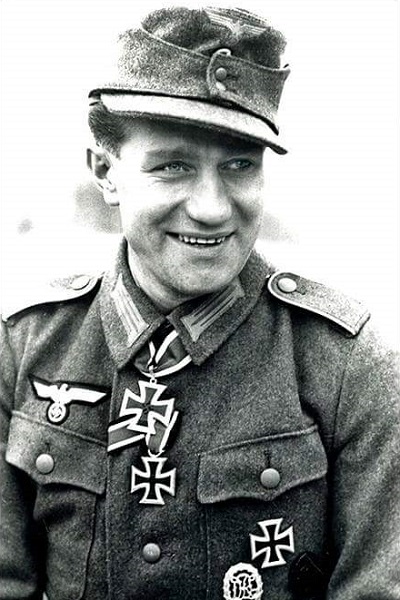Orth, Karl
- Date of birth:
- April 18th, 1906 (Dürkheim/Palatinate, Germany)
- Date of death:
- July 20th, 1968 (Rheinberg-Orsoy/North Rhine-Westphalia, Germany)
- Nationality:
- German
Biography
Do you have more information about this person? Inform us!
- Period:
- Second World War (1939-1945)
- Rank:
- Grenadier
- Unit:
- 13. / Grenadier-Regiment 453 / 9.Armee
- Awarded on:
- March 3rd, 1944
- Period:
- Second World War (1939-1945)
- Rank:
- Grenadier
- Unit:
- 13. / Grenadier-Regiment 453 / 9.Armee
- Awarded on:
- March 3rd, 1944
- Period:
- Second World War (1939-1945)
- Rank:
- Grenadier (Infantryman)
- Unit:
- 13. / Grenadier-Regiment 453 / 9.Armee
- Awarded on:
- March 3rd, 1944
With this the gun platoon was leaderless and without contact with the command post, and was now on its own. Despite the dire circumstances, Grenadier Orth immediately sprang to the gun on his own initiative and began firing one HE round after another at the attacking Soviets. They did not cease their advance, however the German defenders were equally determined and were able to repulse both this as well as a second attack. After that however the Soviets brought up mortars and heavy machine guns. More of his comrades became wounded, however Orth was able to keep the resistance going. He gave the firing orders, brought up ammunition, took care of the wounded and was always on the lookout for new hostile groups.
After defeating the third Soviet attack, the Soviets tried once again with a company of soldiers. By using the last of their strength the men of “Gruppe Orth” were able to change their position and continue the battle. By the time almost all their ammunition was expended, the Soviets finally gave up their attacks in this sector. However at the same time Orth became wounded in the thigh. Nevertheless he stayed in his position until finally relieved by the Regiment.
Orth, who had been at the front for only seven weeks as an ammunition handler, was the soul of the resistance throughout this battle. It was only because of his outstanding dedication that this gun position (containing only 10 German soldiers at the start of the battle) could hold off such an overwhelming foe. This success was furthermore of great importance for the continued fighting of the Germans in this area. Orth would thus be decorated with both classes of Iron Cross simultaneously as well as the Knight’s Cross, an extremely rare achievement. He would also be one of the few soldiers of the rank Grenadier (or equivalent) to be decorated with the Wehrmacht’s highest medal for valour.
Sources
- Photo 1: Igor Poul
- - HUß, JüRGEN & SONDERMANN, HEINZ-WERNER, Ritterkreuzträger im Mannschaftsstand 1941-1945, VDM Heinz Nickel, Zweibrücken, 2009.
- Fellgiebel W.P., Elite of the Third Reich, The recipients of the Knight's Cross of the Iron Cross 1939-1945: A Reference, Helion & Company Limited, Solihull, 2003, ISBN 1-874622-46-9
- Armee-Tagesbefehl, Oberbefehlshaber 9.Armee, 17.3.1944





